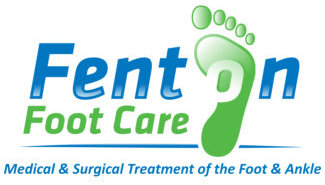Peripheral neuropathy is the term used to describe damage to nerves of the peripheral nervous system. It often causes numbness and pain in hands and feet. Symptoms of peripheral neuropathy include a gradual onset of numbness and tingling, burning pain, sharp electric like pain, or extreme sensitivity to touch. A wide range of factors from trauma to diabetes and alcoholism can cause these symptoms. The one thing that is common of the causes is that many times peripheral neuropathy can be avoided. The risk factors associated with peripheral neuropathy are diabetes (especially if sugar levels are poorly controlled), alcohol abuse, vitamin deficiencies, exposure to toxins, and repeated physical stress.
The nervous system can be divided into two broad categories. The central nervous system consists of the brain and spinal cord. All other nerves in the body can be considered part of the peripheral nervous system. These nerves include sensory nerves that receive feelings such as heat, pain, or touch, motor nerves that control the muscles, and autonomic nerves that control blood pressure, heart rate and digestion. Peripheral neuropathy most commonly starts with the longest nerves (the ones that extend to the toes). It is important to seek medical care right away if any unusual tingling, weakness, or pain is noticed in the hands or feet. Early diagnosis and treatment offers the best chance for controlling your symptoms and prevent further damage to the nerves.
Before visiting your podiatrist for peripheral neuropathy or any other issue, it is important to get prepared. An excellent idea is to write down questions to ask your doctor. This allows you to ask the most important and pressing questions first. It is also important to make a list of all medications, vitamins, and supplements. This allows your doctor to evaluate quickly your current treatments. The final list to make before visiting concerns any symptoms you are experiencing. This should include problems that may seem unrelated to the reason why you are seeing the doctor


